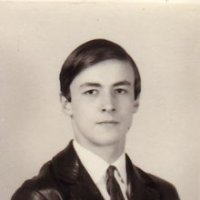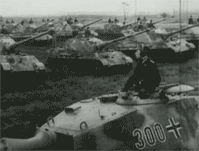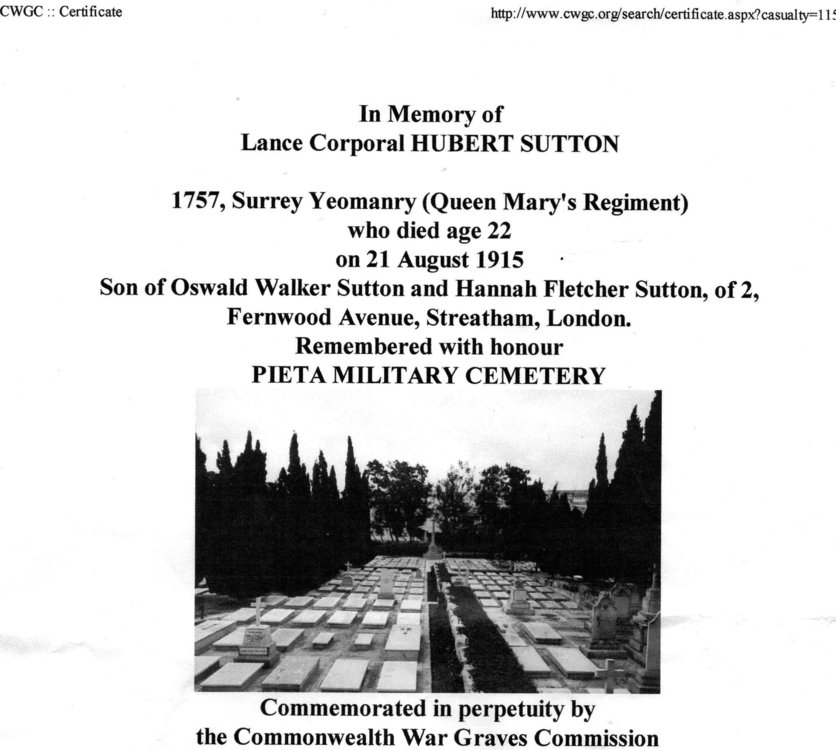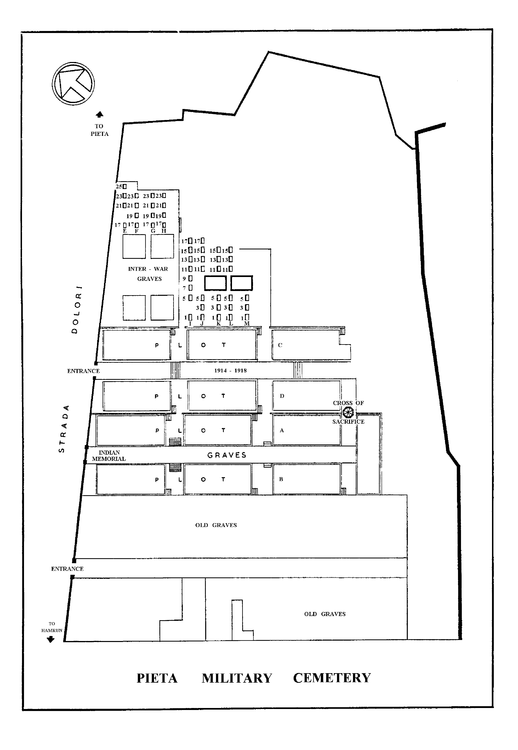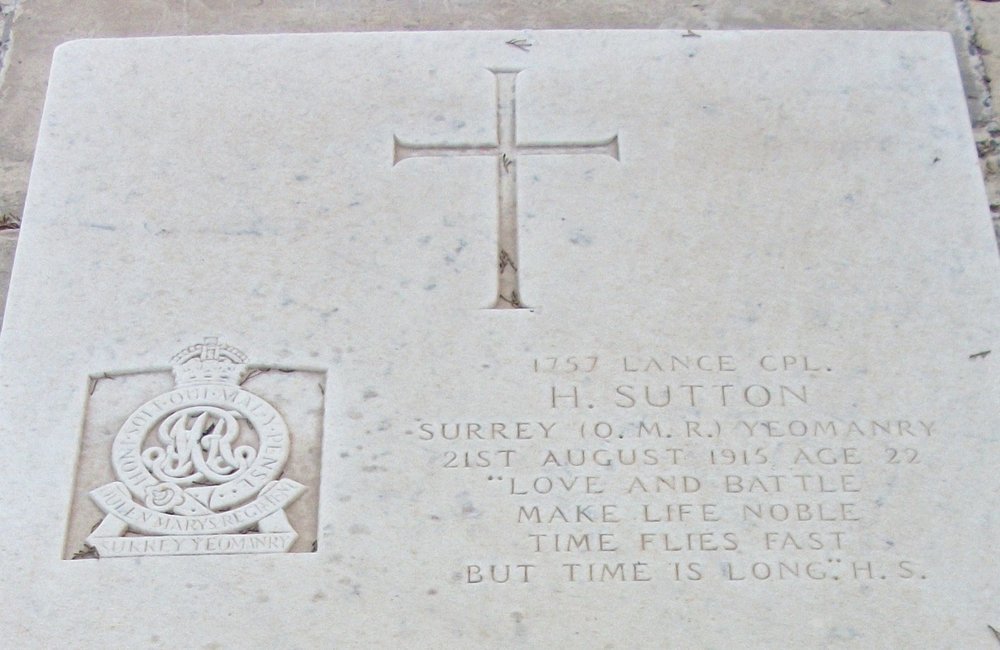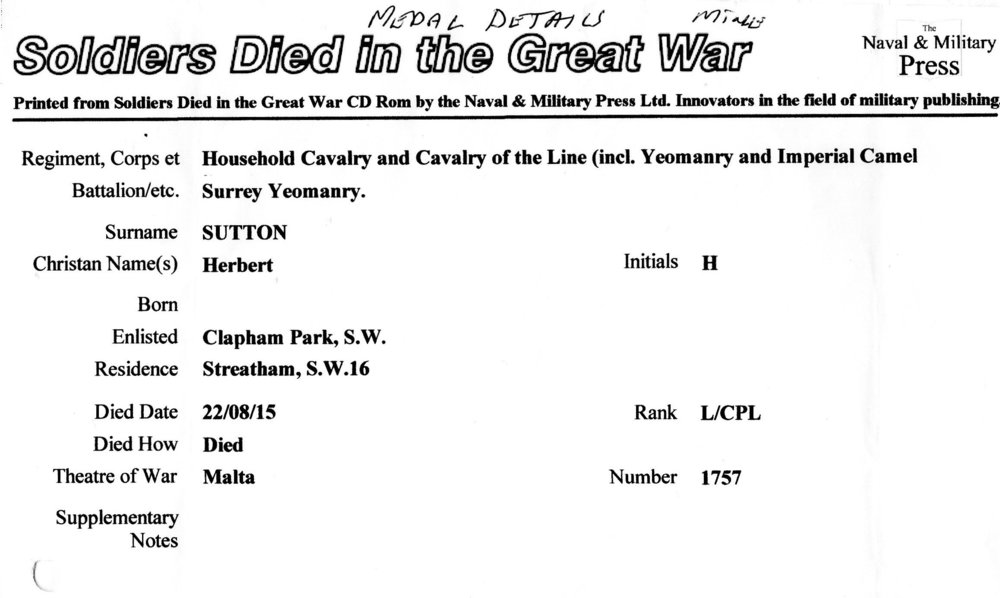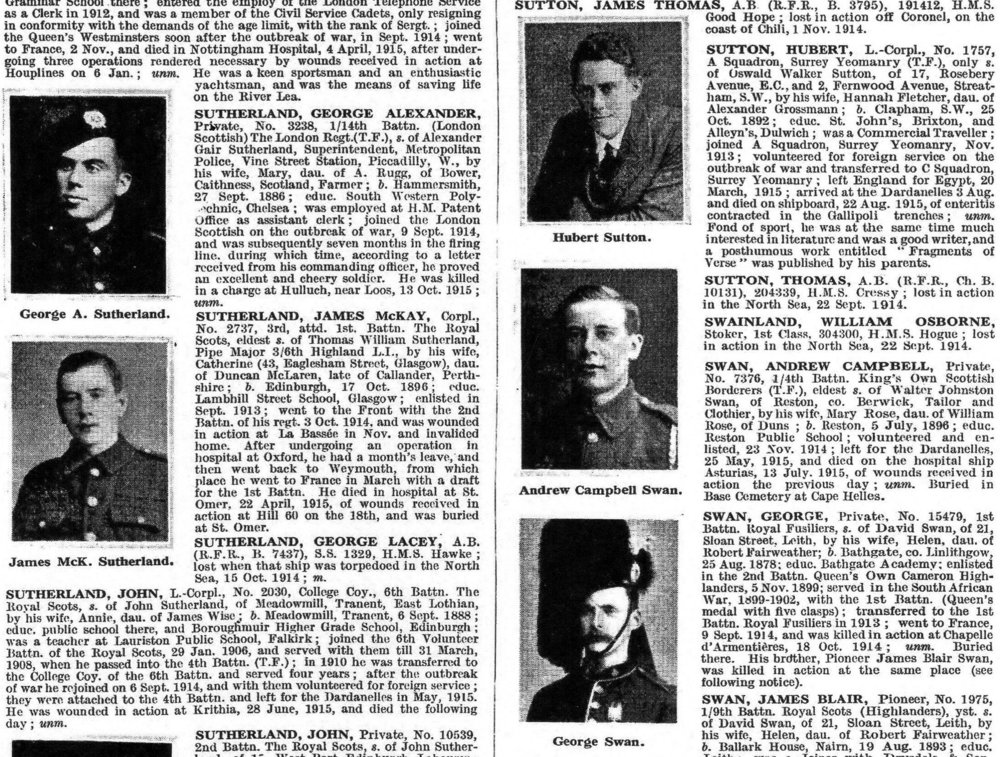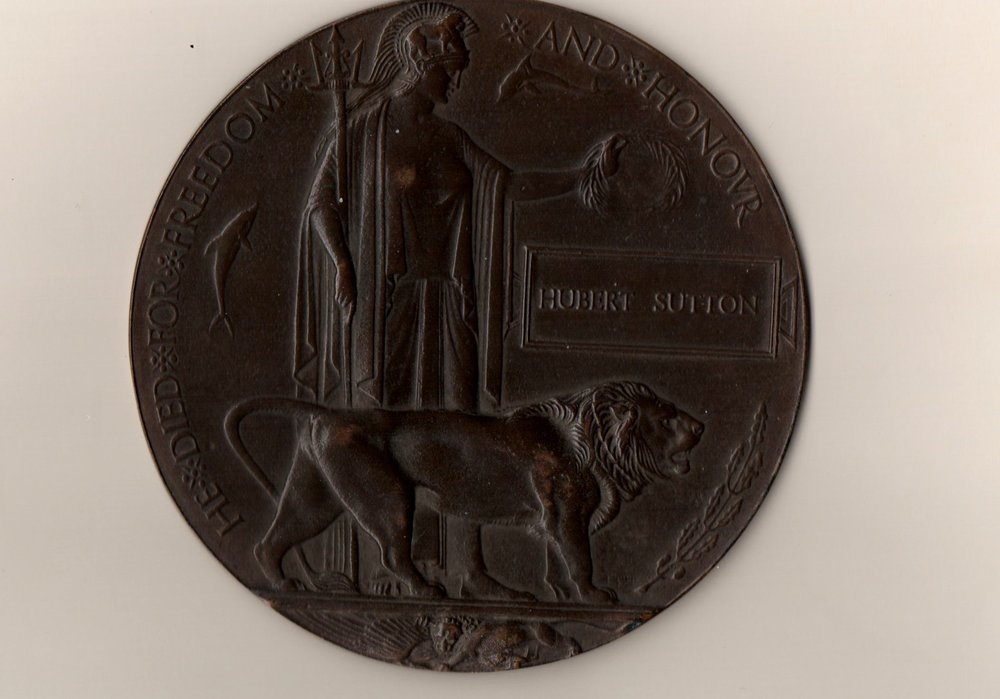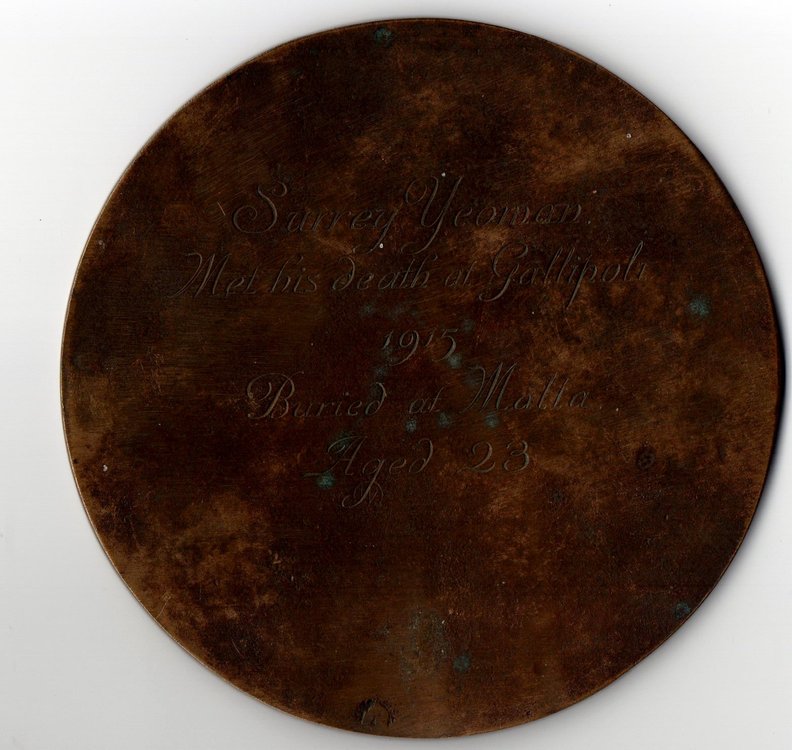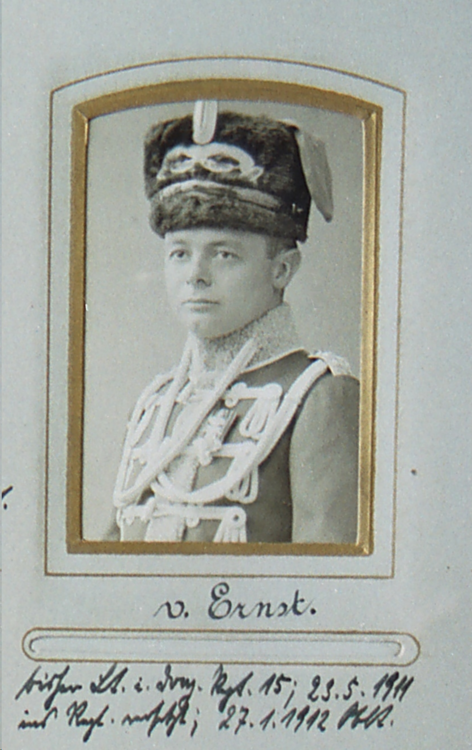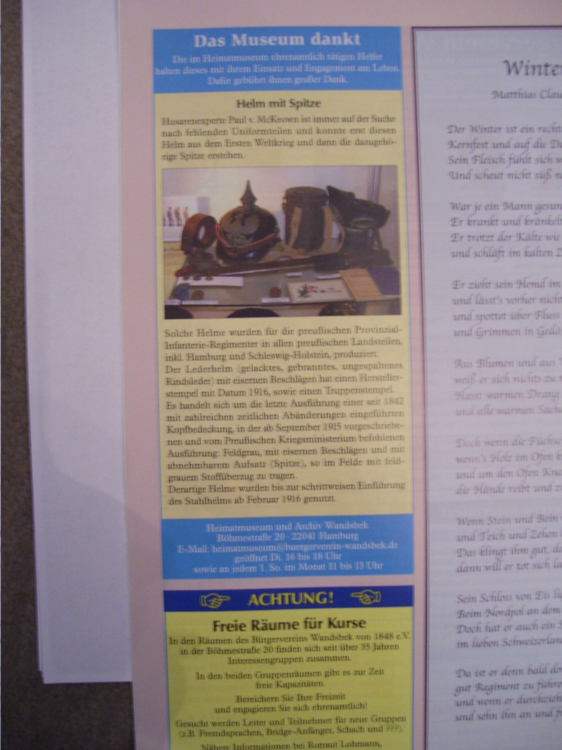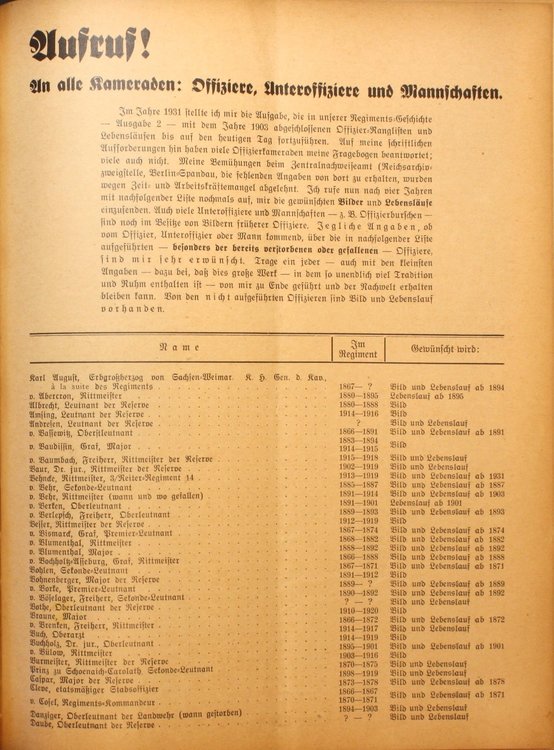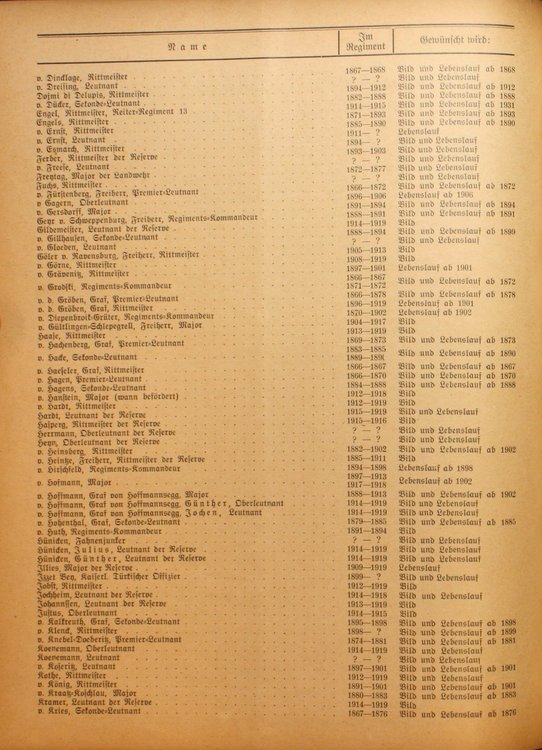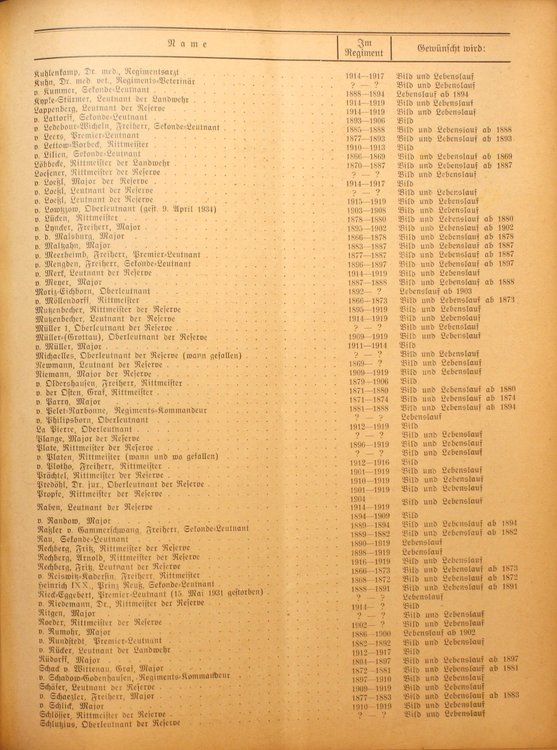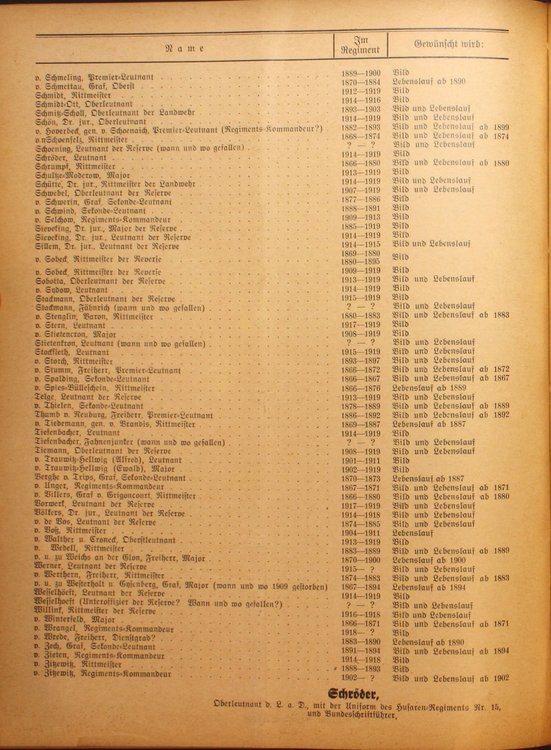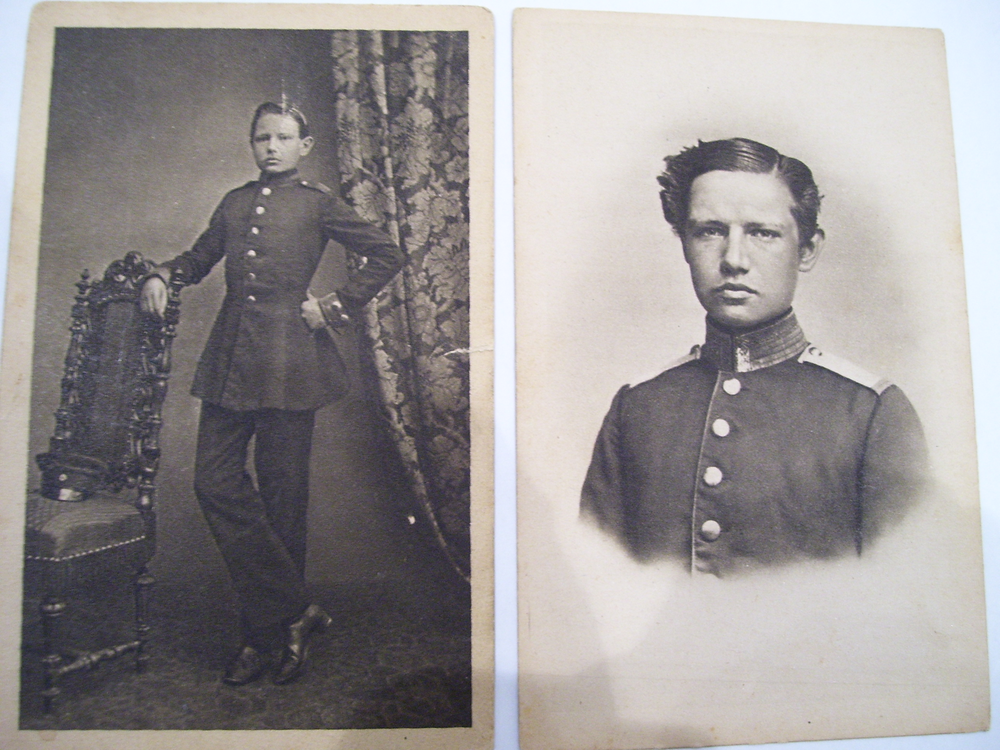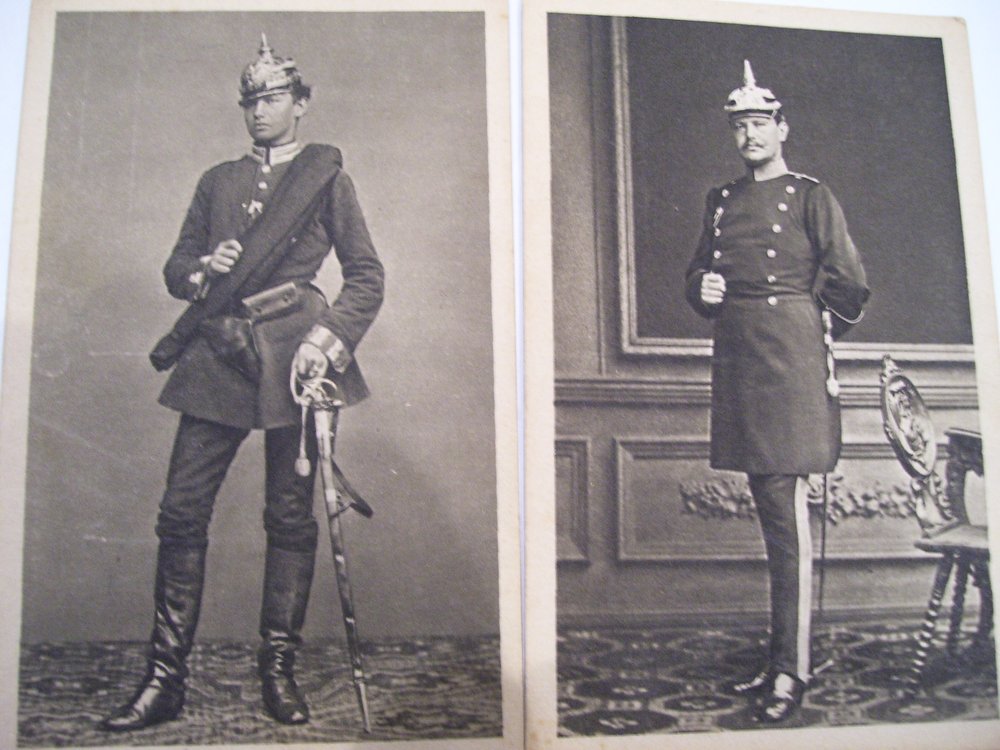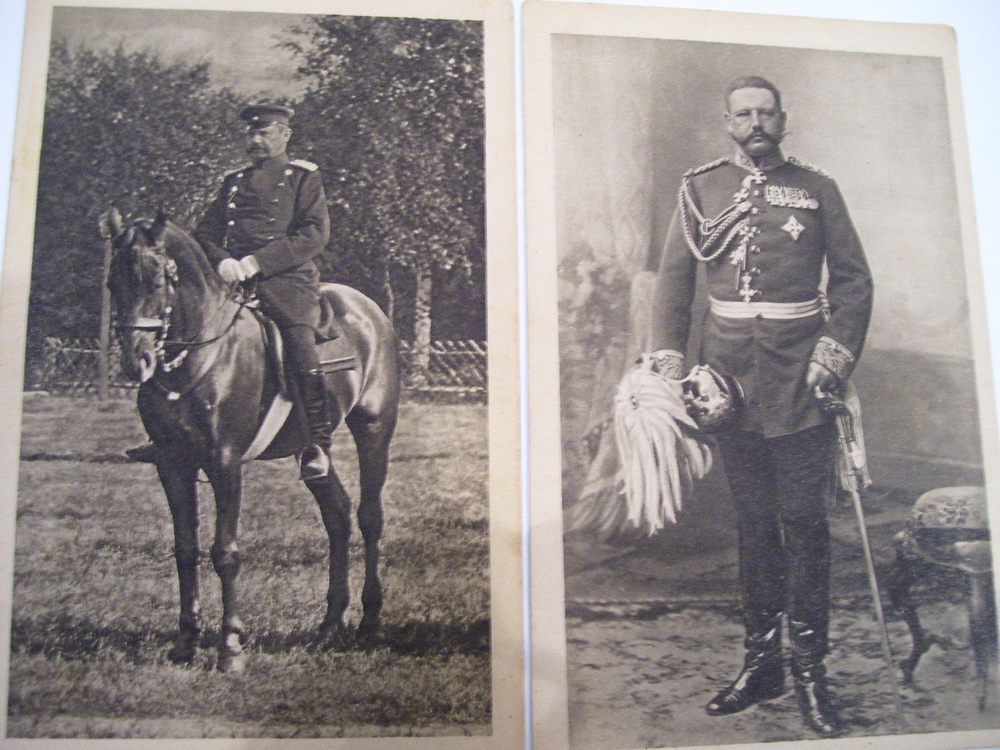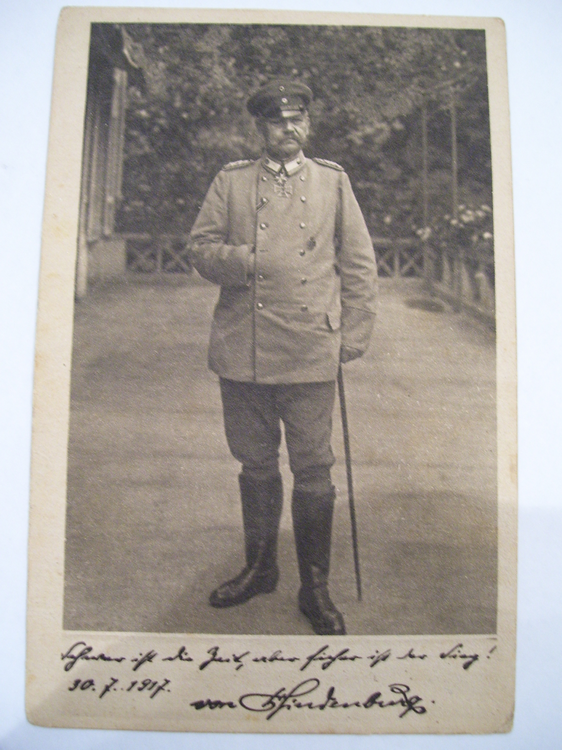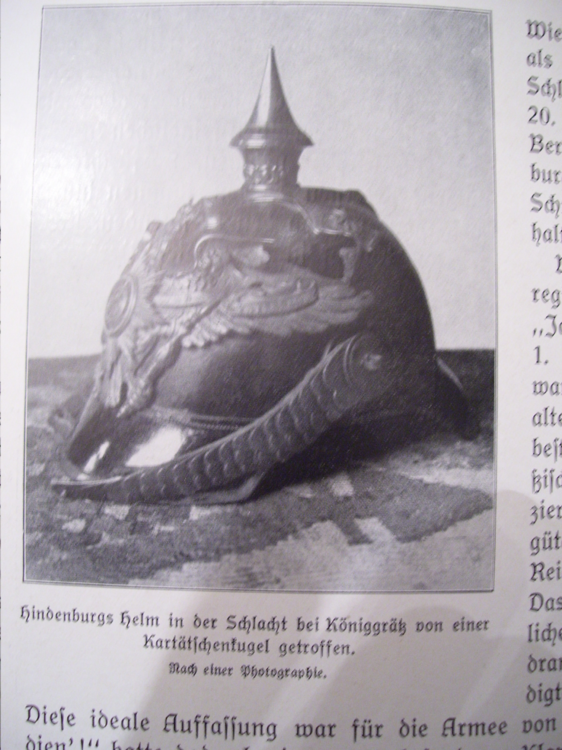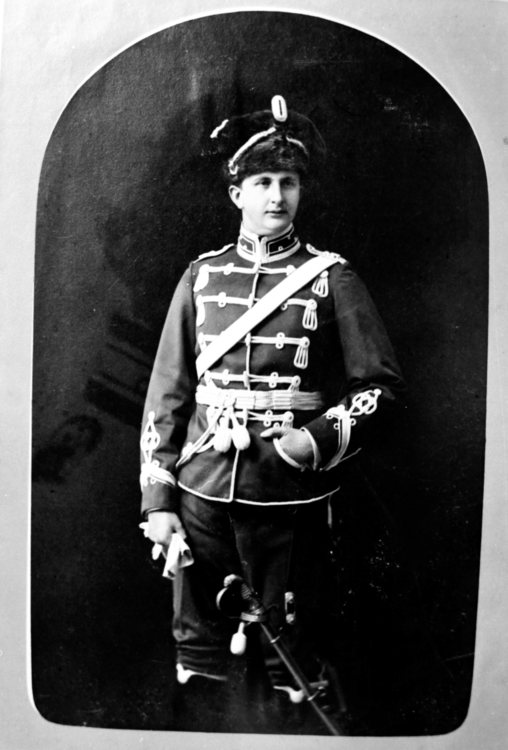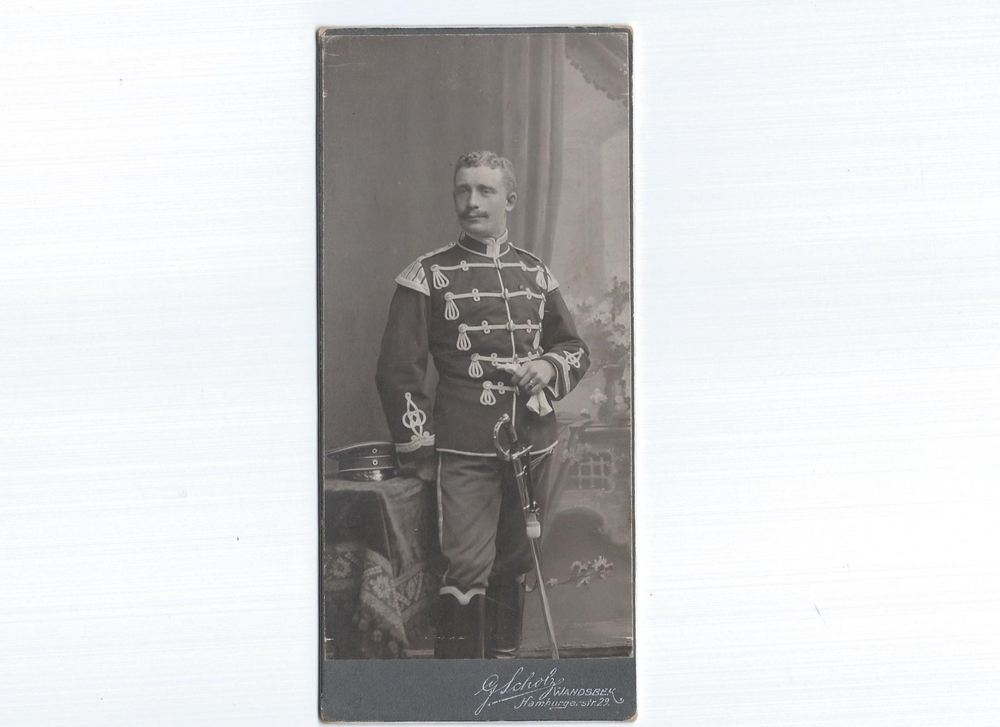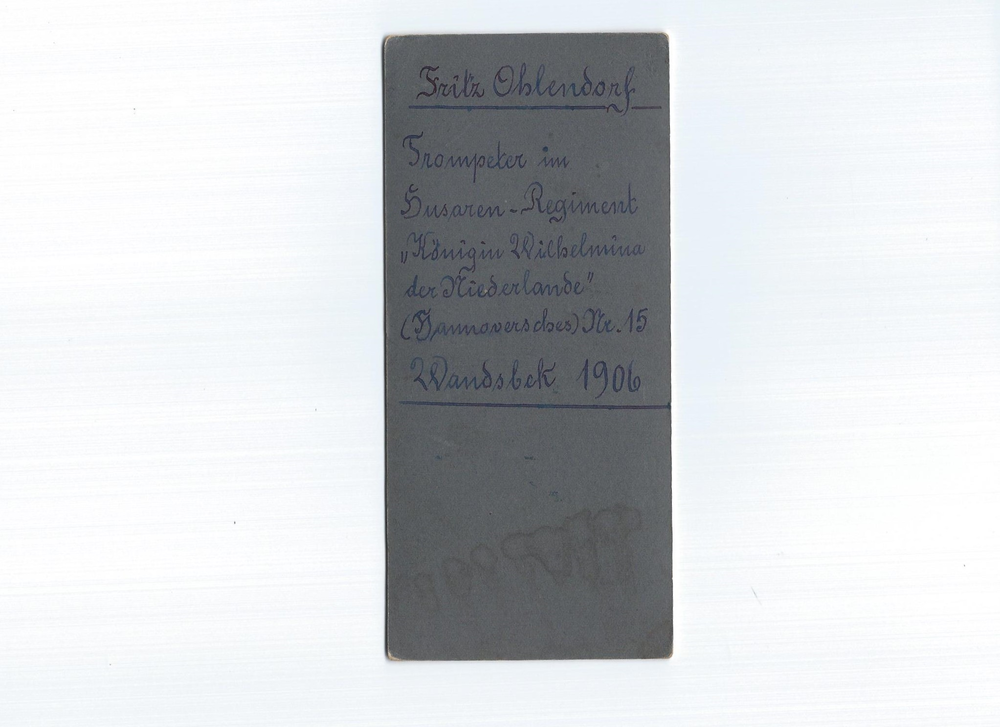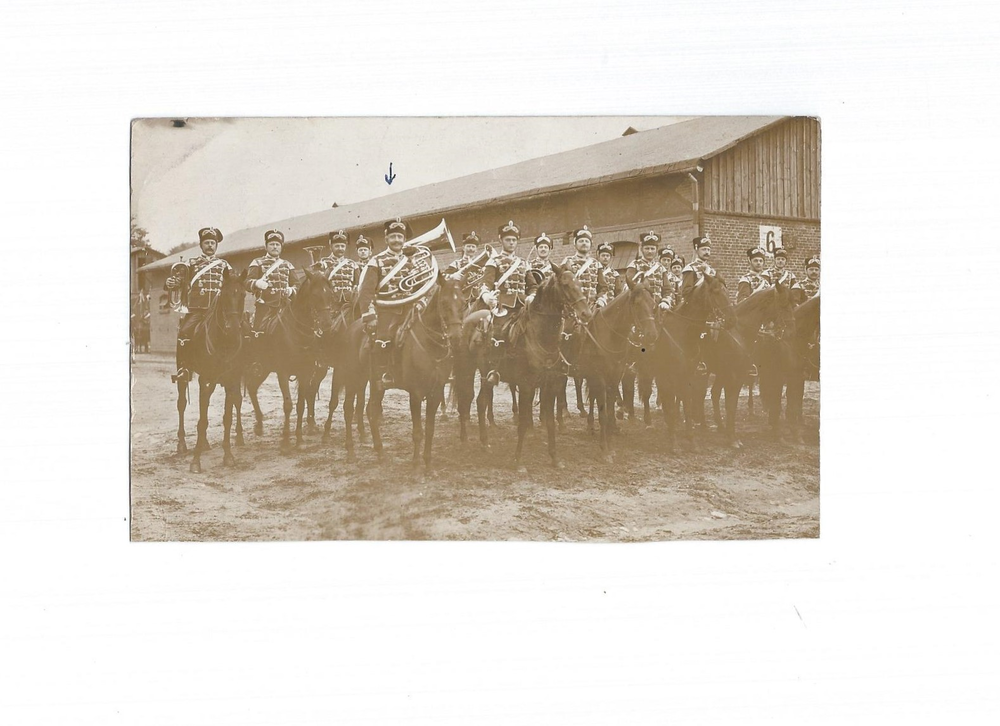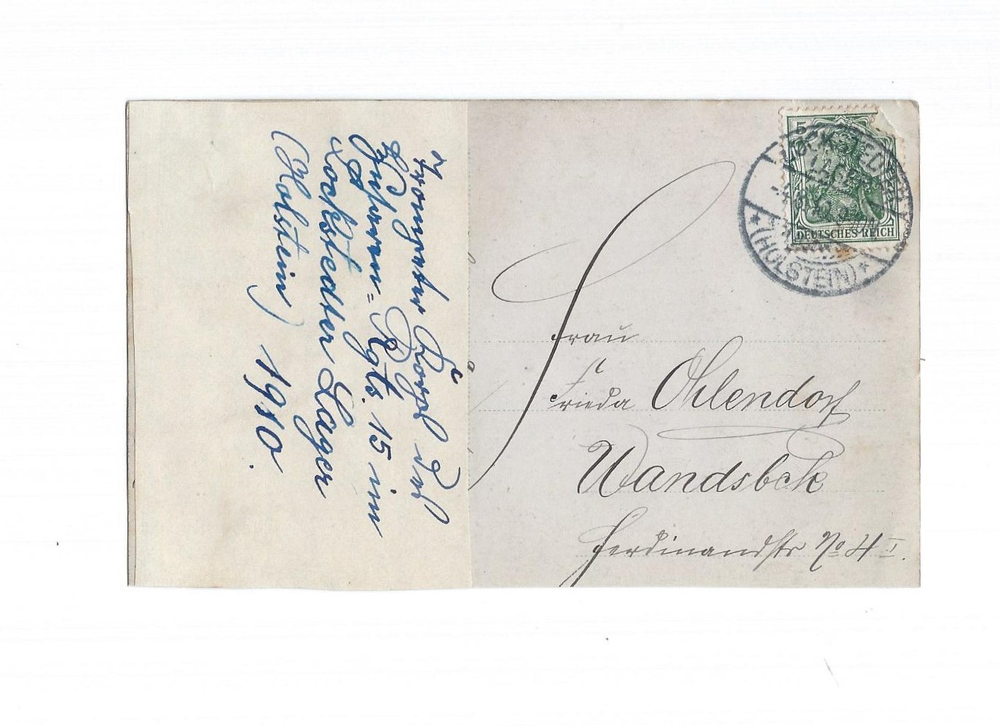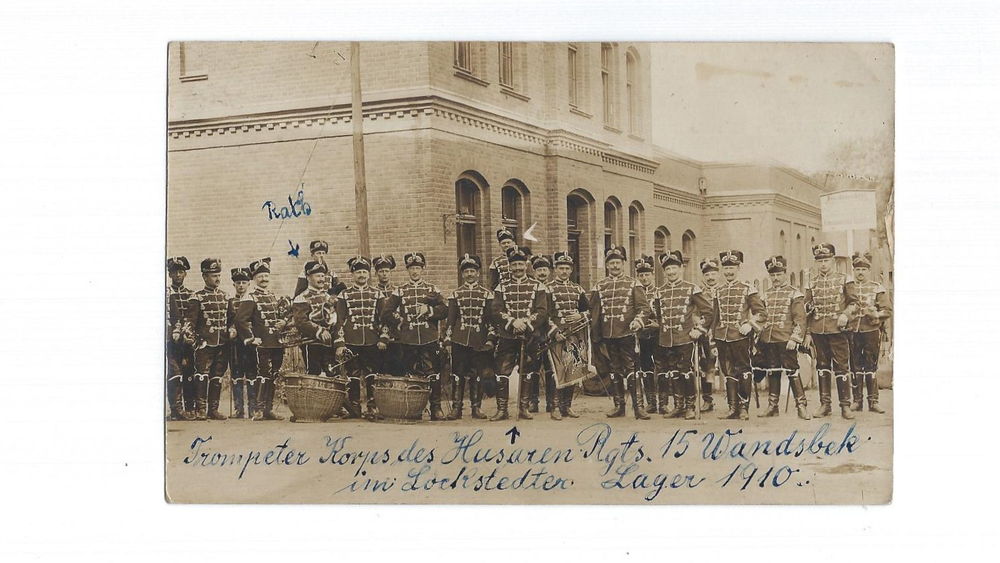Leaderboard
Popular Content
Showing content with the highest reputation on 16/02/19 in all areas
-
Here's an unusual death plaque to Lance Corporal Hubert Sutton of the Surrey Yeomanry ( Queen Mary's Regiment ). He was born on 25.10.1892 in Stockwell Surrey, he joined A Squadron of the Surrey Yeomanry ( Territorial Force ) at West Croydon Clapham in 1913. On the outbreak of war he volunteered for Foreign service and was transferred to C Squadron with service No 1757, part of 29 Division based in Warwickshire during Jan 1915. They embarked at Avonmouth for Egypt on 17th March and arrived in Alexandria on 2nd April C Squadron was then transferred to Imbos on 26th June were the troops initially served at General Headquarters, and it was during this period that he was promoted to Lance Corporal. Following this he was to see service in the Dardanelles campaign fighting in the trenches at Gallipoli. Lance Corporal H. Sutton lost his life due to disease contracted in the trenches, and died on board ship of Enteritis on the 21st August 1915, the most likely cause was by eating or drinking food or water contaminated with the E-Coli bacteria which proved fatal. He was laid to rest at Pieta Military Cemetery in Malta grave 2 row 10 plot A, buried with him are 2 other soldiers they are as follows Corporal J. Harrison 1444 Royal Army Vet Corps attached to 87th Infantry Brigade who died on 24th August 1915 aged 58, of 3 Grove Lane Retford Nottingham born 1857 and husband of Margaret E Harrison he was in the 18th Mobile Veterinary Section of 29th Division, it was in effect a first aid unit, providing medical care for sick, wounded or injured horses used by the division. The other soldier is private H Airey 17444 of 6th Loyal North Lancashire Regiment little is known about him but did find out how he died, he was killed while supporting the 16th Australian Battalion in trenches near Aghyl Dere on the 25th August 1915. I found Hubert Sutton's Obituary in De Ruyigny roll of honour Vol 1 page 347, it Quotes that he was interested in literature and was a good writer, his parents published a posthumous work entitled "Fragments of Verse" and a excerpt from his poetry was engraved on his headstone which reads "Love And Battle Make Life Nobel But Time Flies Fast And Time Is Long" H.S. On the rear of his Death Plaque the following words are engraved ( Surrey Yeoman met his Death at Gallipoli 1915 Buried at Malta aged 23 ). Here are a few Documents.1 point
-
An unusual item of equipment, kindly donated by a gentleman in Holland. A Kleidersack, attributed to Rittmeister von Ernst, name is clearly printed or stencilled to one side. Heavy natural brown cotton canvas material, the bottom has a carrying loop to each side and the top has a row of brass rivetted (similar to Zeltbahnringe) rings for a closing cord. This would contain clothing and uniform and would protect from dirt and damage during travels, and of course would have been used on active service. Some staining and use marks, otherwise very good condition and with no damage. It resembles closely the Seesack, which was later issued to Wehrmacht personnel for their clothing and equipment, but is considerably larger. Rittmeister Joachim von Ernst 1914 - Oberleutnant, kommandiert zur Dienstleistung beim Auswärtigen Amt 6. August 1914, Mouland, Belgium, Kommando Ergänzungstransport 11. November 1914: Regimentsstab, Führer Große Bagage 1926, Rittmeister d. Res. außer Dienst von Ernst, earlier photo as Leutnant, 1911. From 27.1.1912, Oberleutnant, later Rittmeister der Reserve a.D. The helmet purchased for the Museum last year has finally been published in the latest edition of WANDSBEK INFORMATIV, February 20191 point
-
1 point
-
Some original postcards of Hindenburg depicting him at various stages of his career, from Kadett at Wahlstatt to Generalfeldmarschall As a Kadett in Walstatt / Schlesien, 1860 Kadett-Selektaner, Berlin, 1865 (HKA Lichterfelde) Seconde-Lieutenant, 3. Garde Regiment zu Fuss, 1866 Hauptmann im Generalstab, Stettin, 1878 Oberst u. Kommandeur, Inf.-Regt. 91, Oldenburg Generalmajor u. Chef d. Generalstabes d. VIII. A.K., Coblenz "Schwer ist die Zeit, aber sicher ist der Sieg". General-Feldmarschall u. Chef des Generalstabes im jetztigen Krieg, 30.7.1917 Copy of an old photo of the helmet worn by Hindenburg at the battle of Königsgrätz on 3. July 1866. Hindenburg fought on wearing a peaked cap over his bandaged head wound. Unknown whether this historic helmet has survived till today. Further photo of Hindenburg's helmet, photographed in 1920 at Schloß Neudeck Photo is here somewhat distorted due to the format of the page1 point
-
Some images received from Holland Fritz Rechberg, Oberleutnant der Reserve. Uniform before 1899. His brother, Arnold Rechberg also served in the regiment. Fritz Ohlendorf, Trompeter, 1906 Trompeterkorps, Ohlendorf marked with "arrow". He has a Tuba as an instrument. Photo was sent as a postcard from Lockstedter Lager to Frau Frieda Ohlendorf, Ferdinandstraße 4 in Wandsbek with text: Trompeter Korps des Husaren-Rgts. 15 im Lockstedter Lager (Holstein) 1910.1 point
-
An extract from a biography concerning the military service of Ernst Bove, Unteroffizier. This is from an unknown source, which we received as a photo copy. Unfortunately no photos as backup. Ernst (Erni) Bove cam from a wealthy family living in Hamburg near the Alster. Ernst Bove was priveleged and served as Unteroffizier before the War, most likely as Einjährig-Freiwilliger Unteroffizier. A good sense of humour and fairness was also prevailant at the time. Gern wird eine Begebenheit aus der Zeit kurz vor dem Ersten Weltkrieg erzählt: Erni Bove übte einige Wochen als Unteroffizier in der Wandsbeker Kaserne. An einem Sonnabend war er Wachhabender, mußte also seine 24 Stunden im Wachlokal absitzen. Er wollte aber lieber die Nacht bei seiner hübschen, jungen Frau in der schicken Parterre-Wohnung in der Overbekstraße auf der Uhlenhorst verbringen. Leicht fand sich ein geldknapper Unteroffizier, der sich gegen eine entsprechende Summe nur zu gern bereit erklärte, die nächtliche Wache Erni abzunehmen, ein selbstverständlich streng verbotenes Wachvergehen. Ds Unglück wollte, daß ausgerechnet in dieser Nacht der Schwadronschef, der Rittmeister von X., nach froh durchzechtem Kasinoabend in ewas weinseliger Stimmung die Wachstube morgens um 1/2 5 kontrollierte, sofort merkte, was los war, alles wecken und die ganze Schwadron in Paradeuniform zu Pferde antreten ließ, sich auf seinem Schimmel an die Spitze setzte und in Richtung Hamburg Uhlenhorst abrückte. Dieser Rittmeister - das muß man wissen - war privat mit Erni Bove befreundet und wollte ihm einmal einen Schabernack spielen. Vor dem Verlassen der Kaserne hatte er dem diensttuenden Wachhabende noch zugerufen: „Den Bove, den werden wir uns jetzt einmal holen.“ Gottlob rief der clevere Unteroffizier sofort in der Overbeckstraße an. Erni Bove erkannte die Situation schlagartig und meisterte sie. Alles wurde zum würdigen Empfang der etwa 120 Husaren mit ihrem Rittmeister und drei Leutnanten in windeseile vorbereitet. Im großen Wohnzimmer wurde vom Mädchen alles Erforderliche für ein üppiges Sektfrühstück für die Offiziere hergerichtet. Überall standen Sektkühler mit Champagner, Kaviar auf Eis, Toast, Cigarren, Cigaretten usw. Usw. Ein benachbarter Kolonialwarenhändler lieferte schnellstens (man bedenke: es ist Sonntag Morgen um 1/2 6 einige Fässer Bier, die draußen auf dem Fußweg neben eilig aufgestellten Tischen mit Gläsern und Bergen von hilfreichen Händen gestrichener Wurst-, Schinken- und Käsebrote angezapt wurden. Währenddessen trappelten fast 500 Hufe durch die schlafenden Stadtteile Eilbeck und Uhlenhorst; die Einwohner der Wandsbeker Chaussee, des Mühlendamms und der anderen Straßen stürzten aus ihrer Sonntagsruhe aufgeschreckt wegen des unbekannten Lärms an die Fenster. Als die Husarenschwadron in ihren Schmucken, bunten Uniformen mit Pelzmütze und Attila in die Overbeckstraße eingebogen war und vor der Boveschen Wohnung ihre Paradeaufstellung einnahm, trat der Unteroffizier der Reserve Bove in Galauniform mit seiner Frau auf die Terrasse hinaus, meldete strahlend dem verblüfften Rittmeister, daß alles zum Empfang und Imbiß niemand mehr dienstlich oder gar böse sei... es gab ein rauschendes Fest, und als zwei Stunden später alle gemeinsam wieder in ihre Kaserne abrückten, sollen die Wandsbeker Husaren fröhliche Lieder durch den Sonntag-Morgen geschmettert haben. So etwas war nur vor 1914... und nur bei Ernst Bove möglich. Ein befreundeter Bankdirektor aus der Overbeckstraße rief den Morgen bei meinem Vater an und fragte: „Was ist nur bei Ihrem Schwager Bove los? Hier ist ein reines Feldlager auf der Straße. Alles ißt, trinkt und singt.“1 point
-
One more from my collection. Very much still a work in progress. I feel I have only scratched the surface on this one. George Ormiston Wood - 1st, 2nd and 4th Battlion, The Kings Own Scottish Borderers Born: 1918 Birthplace: St Boswells Father's Occupation: Policeman Died: December 15 2003 Married: Masie Scott of Overhall 1957 (died suddenly 1982) Residence St Boswells - 1918-1922 Roberton - 1922-1931 Thornybank, Denholm - 1931-1988 11 Teviot Crescent, Hawick - 1988-1995 Crumhaugh House, Hawick - 1995-2003 Schooling Roberton School Hawick High School (after passing 11+) - Left 1935 Revereand Mortimer's Boy Scout Troop Jobs Telegram Boy, Borthwickbrae Post Office Joiner, Hawick - 1935 KOSB - 1935-1947 Insurance Salesman, Britannic Insurance Company 1947-1957 Lyle & Scott, Hawick - 1957-1982 Army Career Enlisted - 14 June 1935 3rd Class Certificate of Education - Depot, 24 September 1935 Posted - 1st Battalion, KOSB, Malta - 20 November 1935 2nd Class Certificate of Education - Malta, 1 April 1936 Posted - 2nd Battalion, Jubbelpore, India Posted - 4th Battalion, UK - 1944 Posted - 1st Battalion, Palestine - 1945 Left - 1947 Hawick Archaeology Society Joined - 1955 Life Member - 1977 Honorary Vice president - 1989 Copuncil Member - 1959-1972 & 1982-1988 Field Secretary - 1962-1972 Field Excavations - HAS Crumhaugh Tower Dod Burn Pele Tower Heronhall Norman Burial Ground at Minto Regeneration of Pine TRees near the summit of Ruberslaw Competitions Denholm's Best Kept garden - Winner numerous times 1988 - Council for Scottish Archaeology Robertson Award - 2nd Prize Published Articles Roberton, The Making of a Parish, 1991 Report to the HAS of the Excavation at Crumhaugh Tower 1962-1965 Obituary - Borderers Chronicle 3187807 - George Ormiston Wood - Sadly George died 15 December 2003. George joined the Regiment in 1935 as a regular and joined the 2nd Battalion at Jubbelpore in NW India. He served in India until being sent as escort to Italian prisoners taking them to Australia. After delivering his charges he returned to Britian via the USA in time to join the 4th Battalion in liberating Walcheren in the Netherlands. Geroge saw out the war with the 4th before serving in the 1st Battalion in Palestine. After de-mob he lived in Denholm where he became a well known authority on local culture and history with many booklets and pamphlets about the Borders to his credit. His last 10 years were marred by a very severe debilitating illness which he bore with customary cheerfulness. An hour or two in George's company was a delight often experienced by this writer. George was a true Borderer in every sense and will be greatly missed by all who knew him.1 point
-
Thanks, Dave. Nothing more on George Wood yet. However, I do have others in my collection that are various stages of research. Perhaps I will post some more in the near future. Cheers Graeme1 point
-
Fantastic Graeme. I love it when someone can put a face to the medals and they go from being lumps of metal to someones life story. Any more?1 point
-
Mainly KOSB but I do still dabble in other things. It's a good start to my research on him but as I say with this chap I have just scratched the surface so far. It's interesting to note that both Obit's have his army career wrong. In the regimental magazine, The Borderers Chronicle, I have found mention of his early career and it ties in with his GSM. The Clasp he has is 'Palestine' which means that he was there with the 1st Battalion in early 1936. The Chronicle puts him as transferring to the 2nd Battalion in late 1936. He qualified for a 'Palestine 1945-1948' Clasp on his return to Palestine in 1947, again with the 1st Battalion. I have never seen a GSM with both a 'Palestine' and a 'Palestine 1945-1948' Clasp.1 point
-
That's quite a comprehensive history you have there G sounds a nice fella too. Its good to know that with your medals his memory will still live on. Are you collecting purely the KOSB now?1 point
-
Picture 1 - Training Squad, Depot, Beriwck Barracks, 1935 Picture 2 - George Wood being presented with the Dutch Liberation Medal by the Dutch Military Attache, Hawick, 2003 Picture 3 - Charcoal sketch of George Wood by Sandy Milligan, Approximately 2000 Picture 4 - The medals of George Ormiston Wood1 point
-
The Poetry of George Ormiston Wood "Written at Kitchener Lines, The Ridge, Jubbelpore, India, 1939. In the tough days that come just before the monsoon breaks, wnd with Borthwick Water, where I spent my boyhood in mind and knowing that a greater storm than the monsoon was not far ahead." My heart it is sore for a sight of my homeland Out here on the plains, so sun scorched and still When the wind only raises the hot choking dust-storm I can still feel the kiss of the mists on the hill As I wander the tracks over wearisome ridges By some waterless nullah or sun dried ravine I can see thy cool rivers 'neath moss covered bridges I can see thy broad valleys so pleasant and green I can still see the bracken, rain soaked and green smelling As I trod in the dawning thy wind-swept wild land And hear in the evening, the soft peals come swelling Where heart of the country, thy grey churches stand It's deep in my heart still lies a great longing to old friends and old scenes, when days were carefree At eve and at dawning the meories come thronging While far I am wandering, my Homeland, from thee1 point
-
Hawick Transactions - Obituary HAS has lost a stalwart member with the death of George Ormiston Wood. "Ormie" was born in 1918 and spent the first years of his lif in St Boswells coming to his beloved Borthwick Valley when he was 4 years odl, his father having transferred to take charge of the Roberton Police Station, now a private house, appropriately named 'The Coppers'. Here it was that he cultivated his lifelong love of nature, exploring the hills, woods and ponds around his home, in search of whaups and peewit's nests, newts and baggies. He went to Roberton School under Miss Cameron who gave him a sharp crack on the knuckles with a ruler if she saw him writing with his natural left hand and was in Reverend Mortimore's Boy Scout Troop. Passing his 11+ he cycled to continue his education at Hawick High School and got a summer job as a telegram boy at Borthwickbrae Post Office, only ever delivering one telegram, all the way to Howpasley for which he received the princely sum of 1s 6d. On closing o the Roberton Police Station in 1931 the family moved to denhom to Thornbank where Ormie stayed for almost 60 years. He continued to cycle to school, having trouble with tempremental carbide lamps returning home on the dark winter evenings. After starting work as a joiner in Hawick in 1935 he joined the Kings Own Scottish Borderers and after training at Berwick he went to Jubbelpore on the North West Frontier with the 2nd Battalion. When war was declared he went with Willie Lunam who had joined up with him to Australia as part of an escort for Italian Prisoners returning via America to join the 4th Battalion in Belgium and crossed the scheldt to play his part in the liberation of Flushing and the final push through Holland and Germany where he was present at the famous Letzlingen Common Riding. He to the end kept in touch with the Vesters, the Dutch family with whom he was billeted. He was brought home ill from Holland with osteomyelitis, an infection of the bone and bone marrow which led to him spending a year in Peel Hospital, his weight at his lowest being down to 6 stone. As a Regular at the end of the war he was transferred to the 1st Battalion and served in Palestine eventually coming out after 12 years in 1947. On returning to civilian life and to Denholm he took great interest in the village youth club particularly enjoying a game of badminton and resumed with zest his walking of the Border hills and further afield, Common Riding expeditions to the Lairig Ghru and the Corrieyairack with Ally Murray and Sandy Milligan being particularly memorable. Ormie was grand company in the hills and even when increasingly stiff in later life moved with deceptive pace. Every January 1st for many years he climbed to the top of Ruberslaw to see in the New Year. He was also responsible for the regeneration of pine trees near the summit ensuring that future generations will be able to enjoy the peace of his favourite glade. He worked for 10 years as an inusrance man with Brittanic Insurance Company then spent the remaining 25 years of his working life in Lyle & scott's stockroom, retiring in 1982. He married Masie Scott of Overhall comparatively late in life in 1957 and they had almost 25 happy years together before her sudden death in 1982. One of Ormie's great passions was his Thornbank garden which contained many rare plants and was a veritable showpiece winning Denholm's best kept garden competition year after year. Another of his great interests was archaeology and he joined the HAS in 1955 becoming a Life Member in 1977 and being made Honorary Vice President in 1989. He served on the Society's Council from 1959-1972 and again from 1982-1988 and was Field Secretary from 1962-1972 when he carried out Excavations at Crumhaugh Tower with Frank Scott, at the Dod Burn pele-tower and at Heronhall, birthplace of Sir Andrew Smith and again from 1982-1988 when with Jimmy Millar and Peter Elliot he took on the mammoth project of restoring the Norman burial grounds at Minto for which sterling efforts they were awarded 2nd place in the Council for Scottish Archaeology's prestigeous Robertson Awards in 1988. He also led many field walks for members to places like Dere Street and Chew Green and a spin-off from this came in 1983 when the Society was approached by the Community Education Department with a view to providing leaders for walks for their '50 plus' group and Ormie was pleased to oblige establishing a very happy relaitionship with the group. In 1991 he contributed a most comprehensive article to the Transactions entitled 'Roberton, the making of a parish' which was alos published in book form. In later life he was a great supporter of the KOSB 4th Battalion Old Comrades Association going on many pilgrimages Gid Lumsden organised wearing with great pride his 1939/1945 Star, his French & Germany Star, his Victory Medal and his General Service Medal with Bar for Palestine. During his last 20 years Ormie had to contend with the degenerative ankylosing spondylitis which involved the fusing togethre of the vertebrae in his spine which led to his becoming increasingly immobile and evenutually crippled. This necessitated his move from Thornbank to 11 Teviot Crescent in Hawick in 1988 and then to Crumhaugh House in 1995 where he spent hi last years physically paralysed but mentally extremely alert which he was to the very end. An inverterate reader he had a special device to enable him to turn pages and another ingenious aid which allowed him to type on his computer. Despite his helplessness he was totally uncomplaining and never heard to grumble and all who visited him came away the better for having enjoyed his crack for the old soldier faced his final enemy with the same courage and fortitude he had demonstrated defending the Empire and it was extremely fitting that just weeks before he died the Consul General for the Netherlands from Edinburgh and the Dutch Military Atache from London came to Crumhaugh House to present him with the Dutch Liberation Medal. Ormie's years of suffering are now over but he has left for all privileged to have known him imperishable memories of one who represented the now sadly rare yet priceless values of comradeship, discipline, integrity and respect. Fareweel, auld freend and peace be wi'ee IWL1 point



